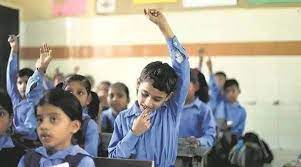ASER report has significant pointers on reversing post-pandemic educational losses
The findings of the first nationwide ASER survey in four years offer significant takeaways. Covering nearly seven lakh children in the age group of 6 to 16 in 616 districts, it frames the impact of the pandemic on learning-outcomes. As expected, the report card in this respect is not too good. But ASER 2022 also belies fears that the prolonged closure of schools — amongst the longest in the world — would set back the steady rise in enrollment over the past 10 years. More than 98 per cent of 6-16 year-olds are in school. It’s heartening that the proportion of out-of-school girls has fallen to 2 per cent. The uncertainties and exigencies of the pandemic years do not seem to have diminished the importance that parents, across social groups, attach to sending children to school.
ASER recorded a steady rise in learning-outcomes between 2014 and 2018. But the lack of classroom interaction with the teacher seems to have reversed these incremental gains. The percentage of Class 3 students who can read a Class 2 book has fallen by nearly 7 percentage points since the last nationwide ASER survey in 2018. The loss in numerical skills is less steep — about 2.3 per cent. But these figures seem less grim when seen from another perspective — 2022 was the first year in a physical classroom for these students. The report suggests that despite wide variations in how children accessed technology during the pandemic years, most schools — even in rural areas — “attempted to keep learning going with digital resources”. Here, too, a significant contribution seems to have been made by mothers and fathers. The percentage of young parents who have been to school has gone up appreciably in the past 10 years and they may have actively participated in overcoming some of the challenges caused by the pandemic-induced disruption, the report suggests. In the coming months and years, as states try to find different pathways to reach NEP 2020’s goal of achieving universal foundational literacy and numeracy, they would do well to work ASER 2022’s hypothesis on the role of parents into their plans.
A comparative analysis of learning-outcomes during the pandemic and post-pandemic years in West Bengal, Karnataka and Chhattisgarh — states where the ASER was conducted during the health crisis — also offers hope. It shows that these states have reversed their losses significantly in 2022. Other studies, including that by the University of California’s Karthik Muralidharan on Tamil Nadu’s recovery, underline the significance of empowering teachers and reaching out to students in their homes. A system that synergises the roles of the home and classroom is the way to go.
